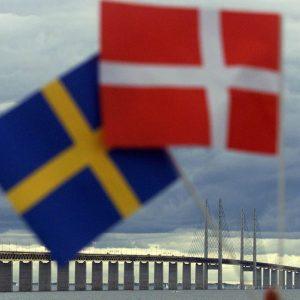Sweden is a richer country than Greece. Its per capita income is about 170% higher than Greece’s ($56,000 vs. $21,000). Which is obviously due to the fact that the average productivity of the Swedish worker is higher than the average productivity of the Greek. However, if a miracle were to happen and the average productivity of the Greek worker equaled that of the Swede, would Greece have the same per capita income as Sweden? The answer is, unfortunately, no. Sweden, even with equal productivity per economically active citizen, would still have a 25% higher per capita income than Greece. Something that would be due to the simple fact that while in Greece 52% of Greeks, (men and women), over 15 years old are actively either working or looking for work, in the labor market, the corresponding percentage in Sweden is 65%. In other words, if we had the rate of economically active population that the Swedes have, even with our current average productivity, we would be 25% richer than we are now!
The almost third-world national participation rate in the labor market (52%), is due to the relatively low participation of men (60% compared to 70% of Sweden and 63% of the European average), but mainly to the very low participation rate of Greek women in the labor market, (45% against 64% of Sweden and 52% of the European average). The ratio of economically active women to economically active men in Greece is 74%, significantly lower than the European average of 81% and much lower, -of course-, than Sweden’s 90%. In other words, Greece, a developed world society, keeps the majority of its female population out of economic activity, with all that entails.
Of course, something like this could be the cause of a demographic dynamics, which Greece needs. Internationally, there is a strong negative correlation between the participation rate of women in the labor market and the children they give birth to. Niger, for example, with one of the lowest female-to-male labor force participation ratios internationally (34%), has the highest fertility rate: 7 births per woman. Without reaching such extremes, the statistical “expectation” would be that Greece, since it has so many women outside the labor market, would show, at least, a demographic dynamism. Except, as we all know, that’s not the case at all. Greece, with 1.4 births per woman, has one of the lowest fertility rates in Europe and the entire world. This is the reason, after all, that its population is shrinking and, at the same time, aging.
Since, however, Greek women do not give birth, nor do they work, an alien visitor would assume that what distinguishes them would be that they enjoy their lives. As we know, however, this does not happen all at once and Greece, according to the data of the World Health Organization, is the second most depressed country in the world, and depression, according to the same source, is something that mainly occurs in young people individuals and women.
Greece today is concerned with questions such as what pronoun should be used for people with four-phase sexual orientation, or how it will include irregular immigrants, who, apart from being carriers of a cultural identity that is explosively incompatible and completely competitive with the identity of the people of the modern and post-modern societies of representative democracy, have, moreover, the special characteristic of coming from societies where the participation rate of women in the labor market is even lower than that of Greece: 16.5%, 24, 5% and 37.7%, in some cases-(that is, even if we legalize their presence here, they will obviously keep their wives locked up at home, marrying them from the age of 12).
Overwhelmed with such and other similar issues, Greek society does not deal at all with what is its central problem, namely the marginalization, discrediting, and oppression of half of its population. Obsolescence which is also the generative cause of all its epigenetic problems: demographic decline and aging, (because in the advanced countries of the West, the rule is different: women have more children when they participate in the labor market more), economic stunting, ( since we are significantly poorer than we would be if we made better use of our human resources), and collective superstition and illiteracy, (because internationally this is something that is positively correlated with the marginalization of women).
And of course we should not forget that development is not the end, but the means: we must pursue the empowerment of Greek women, not because this is a condition of development but, on the contrary, because development is a condition of welfare of all members of society – men and women.
Dimitris A. Ioannou and Christos A. Ioannou are Economists







































